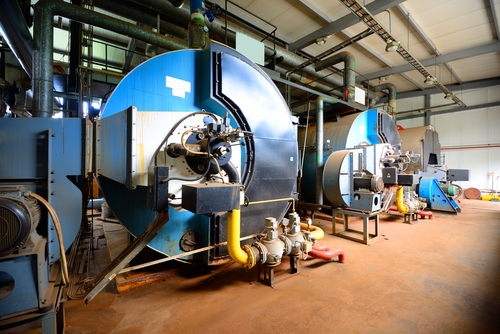 |
To accommodate the National Emission Standards for Hazardous Air Pollutants (NESHAP) changes published in 2011 and finalized in 2013, several deadlines were extended. The first of these new deadlines, January 20, 2014 , is for initial notification, however, if a facility has already submitted the initial notification, there is no need to resubmit. The second extended deadline of March 21, 2014 is for existing boilers to complete initial tune-up requirements. The third deadline, July 19, 2014, is for submission of the notification of compliance status (NOCS) for those tune-ups. NOCS reports must be filed electronically via the Compliance and Emissions Data Reporting Interface (CEDRI) through the EPA’s Central Data Exchange (CDX) at http://www.epa.gov/cdx/.
Forget expensive calls to lawyers and consultants. With Enviro.BLR.com, you get instant access, 24/7. Try it out today and get an the 2014 EHS Salary Guide, absolutely free. Download Now.
Area source boilers emit or have the potential to emit less than 10 tons per year of any single hazardous air pollutant or less than 25 tons of per year of combined hazardous air pollutants. The EPA defines area sources as those used in commercial, institutional or industrial facilities. The EPA considers the following area source boilers to be covered under the rule:
- Coal-burning boilers (including coal refuse, petroleum coke, or synthetic fuels derived from coal)
- Oil or other liquid fuel burning boilers (except as noted below)
- Biomass burning boilers
- Non-waste materials burning boilers
In general, the EPA, exempts the following types of boilers from the rule:
- Gas-fired boilers (including those also burn oil or other liquid fuel during periods of gas curtailment, gas supply interruption, startups, or for periodic testing not to exceed 48 hours during any calendar year)
- Boilers that burn solid waste (these are instead subject to incinerator standards)
- Water heaters
- Waste heat boilers (heat recovery steam generators)
- Temporary boilers
- Residential boilers
- Electric boilers
- Electric utility steam generating units (EGUs)
Everything You Need for Environmental Compliance
Enviro.BLR.com puts everything you need at your fingertips, including practical RCRA, CAA, CWA, hazardous waste regulatory analysis and activity, news, and compliance tools. Try it at no cost or risk and get a FREE report.
Some of the changes to the original 2011 rule include:
- Exemption of hot water boilers (not generating steam) that are rated at less than 1.6 million Btu per hour and residential boilers if located in dwellings of four or fewer family units including those at institutional facilities such as universities, commercial industrial facilities such as farms and in single-unit dwellings converted to apartments.
- Existing dual-fuel fired boilers that switch from gas to oil, biomass or coal will remain existing sources if they were designed for alternate fuels.
- New oil-fired units are allowed to use low-sulfur oil as an alternative method for meeting PM emission standards and are not required to meet the PM limit as long as the unit does not use post-combustion controls, with the exception of a wet scrubber, to reduce sulfur dioxide or PM emissions.
- New or reconstructed boilers must perform the first biennial tune up within 25 months or the five-year tune-up no later 61 months after start up, as applicable.
- Certain area source boilers must conduct tune-ups every five years including seasonal use units, limited use units, oil-fired units with heat input capacity equal to or less than 5 MMBtu per hour, and units with oxygen trim systems.

all web owners and bloggers made good content as you did, the net will be a lot more useful than ever before.